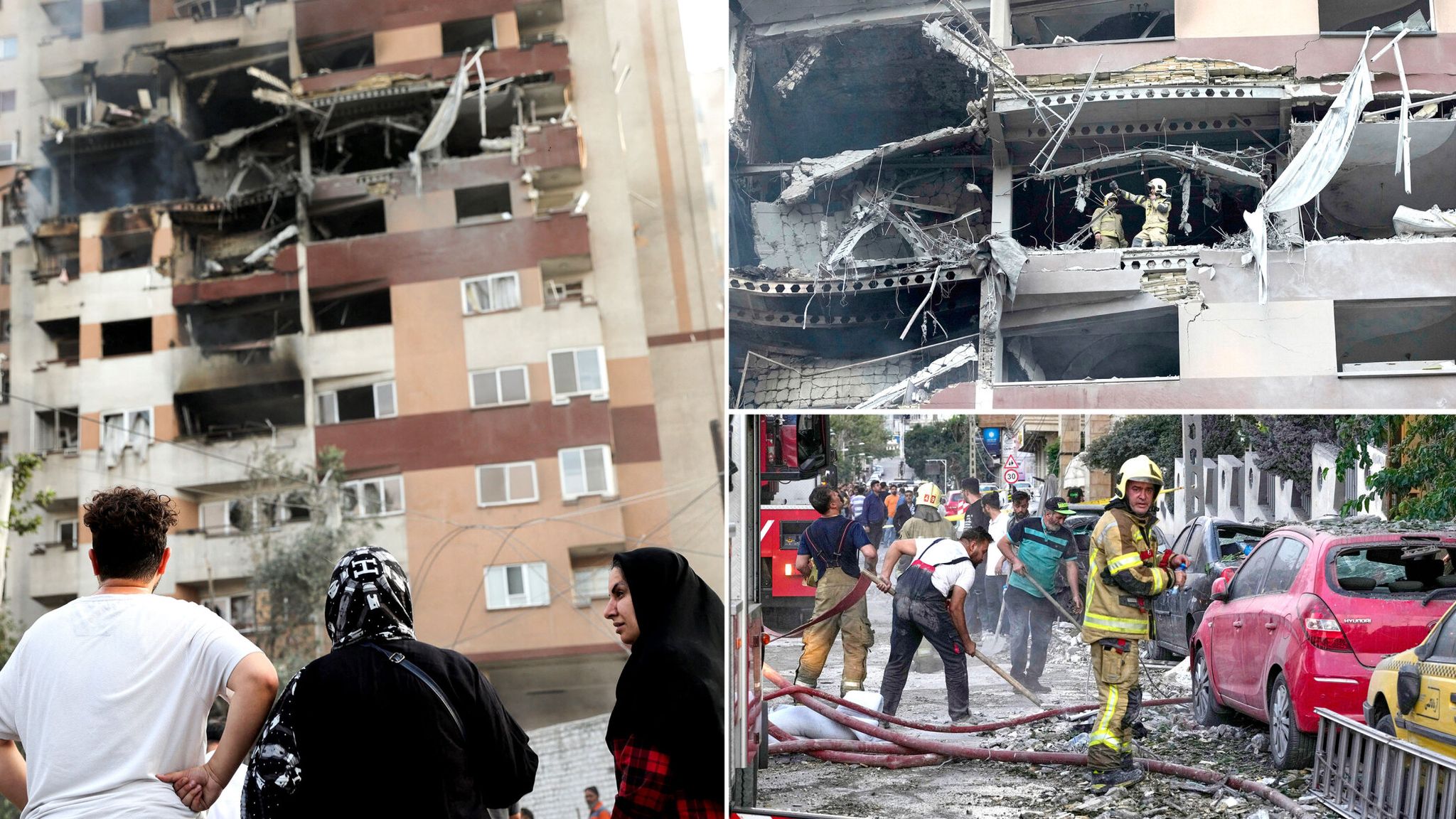
The 2025 Israel–Iran Conflict: Operation Rising Lion
In mid-June 2025, the world watched in horror as Israel launched one of the boldest military campaigns of the 21st century: a frontal and large-scale attack on Iran. What had been brewing for so long in the background—proxy wars, secret sabotage, cyber conflict, and political brinksmanship—exploded into the open in what has become known as Operation Rising Lion. Historical Background: A Conflict Decades in the Making
Israel-Iran tensions are not recent. Iran's rulers have been irreconcilably hostile to Israel since the Islamic Revolution in 1979, and Israel has considered Iran's nuclear program and support for groups like Hezbollah and Hamas to pose existential threats.
In the 2010s and early 2020s, Israel initiated a number of covert operations against Iranian nuclear scientists, missile programs, and arms s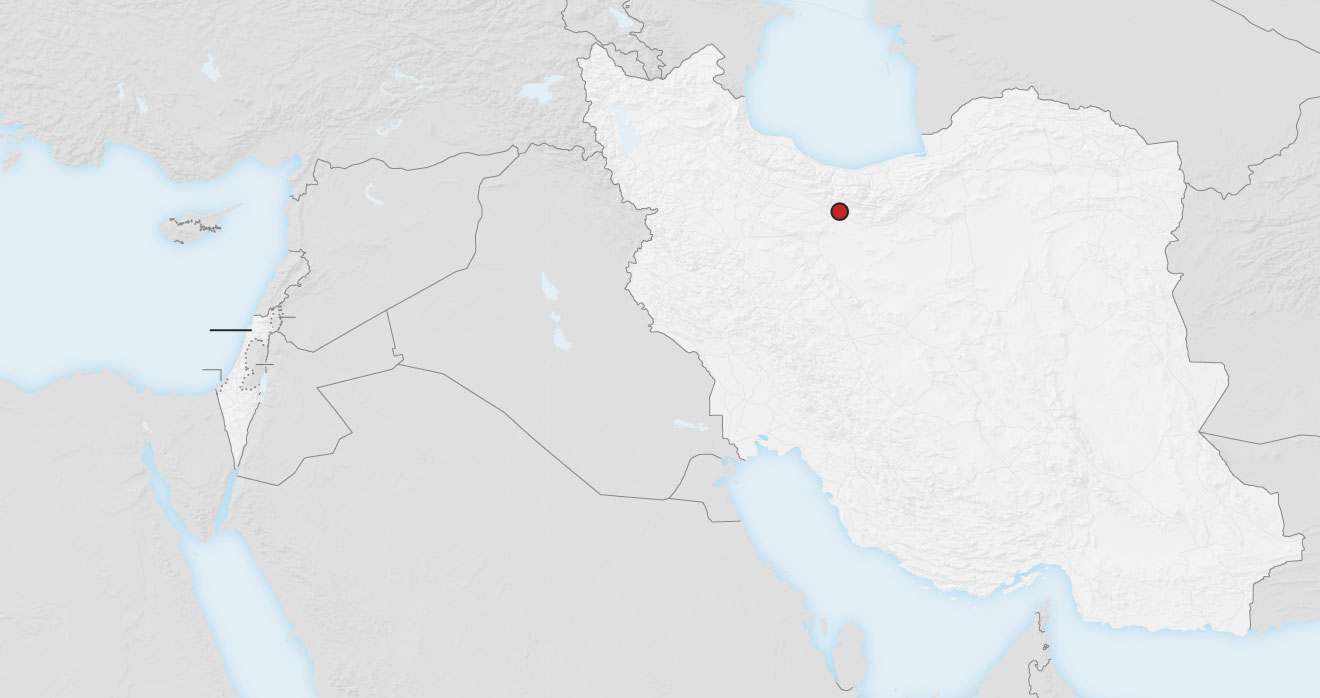 hipments. Iran responded via proxies, with Hezbollah attacks being initiated from Lebanon and Hamas operations initiated from Gaza. These tit-for-tat attacks brought the two sides to the edge of open war on multiple occasions but stopped short of direct conflict. That changed in June 2025. Catalyst for War: Nuclear Fears and Strategic Calculations
hipments. Iran responded via proxies, with Hezbollah attacks being initiated from Lebanon and Hamas operations initiated from Gaza. These tit-for-tat attacks brought the two sides to the edge of open war on multiple occasions but stopped short of direct conflict. That changed in June 2025. Catalyst for War: Nuclear Fears and Strategic Calculations
By early 2025, Israeli intelligence had estimated that Iran was weeks from nuclear weapons breakout capability. Satellite imagery and cyber intelligence showed accelerated uranium enrichment at Fordow and Natanz. Despite international diplomatic efforts, including last-minute negotiations by the EU and Russia, there was no agreement.
On June 13, 2025, Israel launched preemptive air strikes, declaring it a necessary move to prevent a nuclear-armed Iran.
Operation Rising Lion: The Attack Unfolds
Air Assault
The Israeli Air Force initiated a large-scale air campaign with over 200 aircraft. Using F-35I stealth fighters, tanker planes, electronic warfare components, and unmanned aerial vehicles, the Israeli military struck over 100 strategic targets in Iran in less than 72 hours. The most significant sites were: Natanz and Fordow nuclear enrichment plants IRGC missile bases near Isfahan Command-and-control centers in Tehran and Shiraz Air defense batteries and radar stations The strike was designed for shock and overload, crippling as much of Iran's retaliatory capability as possible before it could respond.
Mossad's Covert Role
In a dramatic revelation days later, Israeli intelligence agency Mossad claimed responsibility for disabling more than 30 Iranian missile launchers inside Iran proper in advance of the main strikes. This was achieved allegedly using drones and small explosives smuggled in across the border or remotely fired from covert bases. This hybrid warfare—mixing bombing with espionage—was a change in modern warfare's direction.
Iran's Retaliation: Missiles, Drones, and Escalation
Iran retaliated swiftly and strongly. Within 48 hours of the Israeli attack, it fired more than 200 ballistic and cruise missiles, as well as dozens of suicide drones, at cities such as Tel Aviv, Haifa, and Dimona. Although most were intercepted by Israel's Iron Dome and David's Sling defense systems, some got through the defenses, killing at least 24 Israelis and injuring more than 300. Iranian officials, right up to and including Supreme Leader Ayatollah Ali Khamenei, declared that Iran was now at war. He vowed a "campaign of resistance" that would be waged not just in outright confrontation, but through regional proxies as well.
Humanitarian Fallout
The war's humanitarian cost was immediate and devastating: In Iran, more than 200 civilians and soldiers were dead and more than 1,000 wounded. Air strikes battered several cities, sending civilians fleeing en masse from Tehran and Isfahan. Fuel shortages, power cuts, and internet outages contributed to the chaos. In Israel, though smaller in number, the casualties were psychologically potent. Scenes of panic in Tel Aviv and evacuations in northern cities near Lebanon sent shockwaves worldwide. Hospitals on both sides were overwhelmed. UN humanitarian agencies called for humanitarian corridors, but access was still limited due to the military operations and airspace closure.
Regional and International Reactions
United States: Stuck in the Middle
While U.S. President Donald Trump had initially urged Israel to delay any preemptive attack in favor of renewed diplomacy, once the operation was launched, the U.S. took a supportive position. American aircraft carriers and destroyers were moved closer to the Persian Gulf, and U.S. air defenses in Qatar and Iraq were placed on high alert.
Trump told reporters that he "understood Israel's right to defend itself" and indicated that U.S. strikes on Fordow were on the table, contingent on Iranian retaliation. Russia, China, and the EU: Calls for Restraint
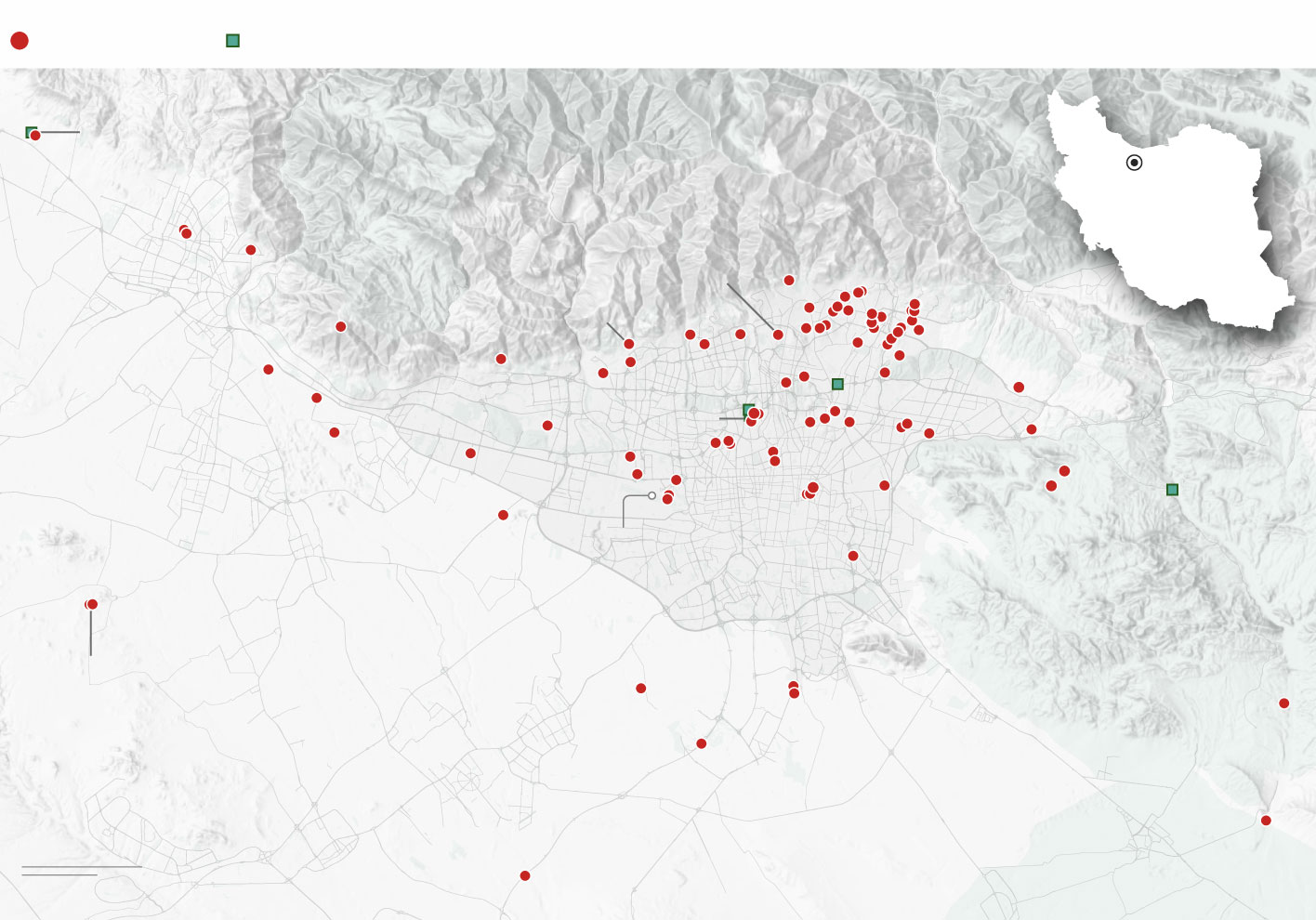
Russia and China condemned the Israeli strikes, holding the West responsible for destabilizing the Middle East. Russian President Vladimir Putin offered to mediate a ceasefire, warning further escalation would lead to a regional war.
French, German, and UK European leaders issued joint calls for both sides to return to the negotiating table and avoid further loss of life. European influence was limited, however, and no formal peace negotiations followed in the first weeks of the conflict.
Oil, Markets, and Global Fallout
The war rattled the global economy: Oil prices soared 7% in two days to over $72 a barrel amid fears of disruption in the Strait of Hormuz. Stock markets plunged globally, and U.S. and Israeli defense stocks rocketed. Countries like India, which had tens of thousands of workers in Iran, initiated emergency evacuations. Over 100 Indian nationals were airlifted in "Operation Sindhu."
Legal and Ethical Debate
International attorneys criticized Israel's actions as potentially violating international humanitarian law, particularly given Iranian civilian casualties. Proportionality and the legality of preemptive warfare under the UN Charter were raised. Others argued simultaneously that Israel's actions fell under Article 51 of the UN Charter, allowing self-defense against imminent attack—a category Israel strongly insisted upon given Iran's nuclear advancements.
Strategic Success or Pyrrhic Victory?
While Israeli leaders deemed the mission a success—saying it delayed Iran's nuclear program by several years—analysts warned this could be a short-term victory. Iran's nuclear sites are deeply embedded, dispersed, and increasingly resilient.
Moreover, the war stiffened Iran's resolve, with leaders proposing to leave the Non-Proliferation Treaty (NPT) and actively pursue nuclear weapons as a deterrent. The Road Ahead
The Israel–Iran war of 2025 is far from over. While both nations have backed away from total war for now, a dangerous precedent has been set: Preemptive war is once again an active tool of global politics.
The balance of power in the Middle East is more unstable than ever. Diplomatic institutions like the UN and IAEA are struggling to remain relevant in the face of unilateralism. What comes next depends on whether backchannel diplomacy can triumph—and whether the world is ready to deal with the deep questions raised by this dramatic and dangerous escalation.
What you need to know
• US weighs options: As the Israel-Iran conflict enters its seventh day, President Donald Trump held a Situation Room meeting Wednesday afternoon to discuss US options. While saying earlier that his patience “has already run out” with Tehran, Trump indicated he has not yet made a final decision on whether the US would get involved.
• Trump’s dilemma: Trying to avoid prolonging the conflict has become Trump’s top imperative, sources told CNN. While he is receptive to arguments, including from Israel, that only the US can decisively end Iran’s nuclear ambitions, he is wary of becoming bogged down in the type of foreign conflict he vowed to avoid, the sources said.
• Iran’s warning: Supreme Leader Ayatollah Ali Khamenei said in a national address that Iran will not surrender and warned that any US military intervention would result in “irreparable damage.”
• On the ground: Israel and Iran continue to trade strikes, with the Israeli military saying it has hit military targets in Tehran and Iran claiming to fire ballistic missiles toward Israel.Israel’s ambassador to the US said Wednesday that Israel must eliminate not only Iran’s ability to make nuclear weapons, but also its ability to produce ballistic missiles. “They come cruising out of the sky and create incredible damage,” Yechiel Leiter told CNN’s Kaitlan Collins, referring to Iran’s missiles. “That production capacity has to be eliminated as well.”“They cannot have the weapons that can destroy Israel, which they claim and which they want to do every day,” he added.
Asked about Israel’s ability to destroy Iran’s Fordow nuclear enrichment site, buried deep under a mountain near the city of Qom, Leiter said “it might require multiple strikes, it might require something else or it might require one of our surprises,” without going into details. “We have a few tricks up our sleeves,” he said, when asked about Israel’s response if the US were not to get involved in the conflict.“If we have to pursue this and prosecute this by ourselves, we’re going to know what to do. We’re not going to allow Iran to have a nuclear weapon,” he told Collins.
Australia begins evacuations from Israel with almost 3,000 registered for assistance in the Middle East
From CNN’s Laura Sharman and Hilary Whiteman
Australia reiterated its call for Iran to halt any nuclear weapons programs as it begins evacuations from Israel, with nearly 3,000 of its citizens registered for help in the Middle East.
Foreign Minister Penny Wong told reporters Thursday in Canberra that Australia is focused on getting a small group out of Israel by land and hopes to move more in the next 24 hours amid an “increasingly dangerous” situation in the Middle East. A small group was evacuated from Israel via land on Wednesday and the government has pledged to assist more crossings where possible.“Iran has a choice here, and it should make the choice to discontinue its program, any program, and to return to talks,” Wong said.Iran has long maintained the objectives of its nuclear program are peaceful.
“In relation to Australians in the region and what I would say is this is a very stressful and risky situation, and we are very focused on doing whatever we can to assist you,” Wong said.“Obviously, there are real limits, hard limits, on what the government can do. The airspace remains closed.”
Australia’s official travel advice remains the same, with 1,500 of its citizens registered for assistance in Iran and 1,200 in Israel, Wong confirmed. “Leave if it is safe to do so, if not, shelter in place,” Wong said.
“In relation to Israel, again, we are seeking to assist Australians where we can.“But please again, listen to the travel advice, and if you need assistance to leave, please register with the Department of Foreign Affairs and Trade. “Emergency consular assistance is available to Australians.”
The Israel Defense Forces issued an evacuation warning to residents in western Iran’s Arak and Khondab early Thursday.
“The IDF continues to operate in the area, as it has in recent days across Iran, targeting the Iranian regime’s military infrastructure,” the statement from the IDF’s Farsi channel said.
The IDF warned residents to “evacuate immediately from the marked area in the vicinity of the Arak-Khondab cities.”
Around 100 Indian students evacuated from Iran arrive home
From CNN’s Laura Sharman
Around 100 Indian students evacuated from Iran amid Israeli airstrikes arrived back in India on Thursday morning from Armenia as part of an Indian operation to evacuate its nationals. Indian media reported the first batch of 110 students arrived in Delhi during the early hours local time under Operation Sindhu, having been evacuated by road to Armenia on Tuesday and later boarding a special flight from the capital, Yerevan. “As part of the ongoing operation, the Indian Embassy in Iran has been assisting large numbers of Indian nationals in moving from areas seeing increased hostilities to relatively safer areas within the country and to subsequently evacuate them using the available and feasible options,” India’s Ministry of External Affairs said in a statement on Thursday. Indian nationals are advised to stay in touch with the embassy in Tehran through its emergency helpline and a 24/7 control room set up by the ministry. Iran is a popular destination for many university students from India, particularly those studying medicine.
US Embassy in Israel has "no announcement about assisting private US citizens to depart"
From CNN's Jennifer Hansler The US Embassy in Israel said in its latest security alert that it has “no announcement about assisting private U.S. citizens to depart at this time.” This came hours after US Ambassador Mike Huckabee said on X that the embassy was “working on evacuation flights & cruise ship departures.”
The updated alert from the embassy, sent Thursday local time, said the State Department “is always planning for contingencies to assist with private U.S. citizens’ departure from crisis areas.” “We will alert the U.S. citizen community if there is additional information to share regarding departure options,” the alert said.The alert states Ben Gurion Airport remains closed and gave guidance on land crossings.
Air defense systems have been activated over Tehran, Iranian authorities say
Air defense systems have been activated over Tehran, Iran’s Islamic Revolutionary Guard Corps posted on Telegram just before 4 a.m. local time. Iran and Israel continue to trade strikes as President Donald Trump’s decision on whether the US would get involved looms large. The American president’s Situation Room meeting ended just a short while ago. Trump has reviewed attack plans for Iran but is holding off to see if Tehran steps back from its nuclear program, a person familiar with the matter told CNN. Israeli Prime Minister Benjamin Netanyahu thanked Trump for “standing by our side” as Israel pushes ahead with its fight against Iran. The US on Wednesday evacuated some embassy personnel and family members from Israel on a US military aircraft, three sources told CNN.

Here’s the key headlines from the last few hours:
What Iran is saying: Tehran’s actions are purely in self-defense, but the country “remains committed to diplomacy,” Iranian Foreign Minister Abbas Araghchi said. “If the Americans decide to get involved militarily, we have no choice but to retaliate wherever we find the targets necessary to be acted upon,” Iranian Deputy Foreign Minister Majid Takht Ravanchi told CNN. “That is clear and simple. Because we are acting in self-defense.”
Israeli attacks on Iran: Israel said it targeted Iran’s missile manufacturing capabilities and carried out “a series of strikes” targeting over 20 military sites in Tehran. The Israeli military assesses that it has significantly degraded Iran’s ability to fire large barrages of missiles toward Israel, according to an Israeli military official. Several people were injured after Israel targeted Iran’s national police headquarters, according to Iranian state news agency IRNA. Tehran residents haven’t been able to sleep in days due to the “constant sound of bombing,” an Iranian-American woman who was in the capital told CNN.
Iranian attacks on Israel: Iran has said it fired Sejjil-2 solid-fueled medium-range ballistic missiles toward Israel, Iran’s Islamic Revolutionary Guard  Corps said in a statement.
Corps said in a statement.
Internet restrictions in Iran: Tehran imposed nationwide temporary restrictions on internet access across the country. The Ministry of Information and Communications Technology cited security concerns.
Trump has reviewed attack plans but is holding off to see if Iran steps back from nuclear program, source says
From CNN’s Alejandra Jaramillo
President Donald Trump has reviewed attack plans for Iran but is holding off to see if Tehran steps back from its nuclear program, a person familiar with the matter told CNN.
The plans were among an array of options the president’s military advisers discussed with him in the Situation Room this week, though officials stressed no decision has been made, as Trump said publicly on Wednesday.
“I have ideas as to what to do, but I haven’t made a final — I like to make the final decision one second before it’s due, you know, because things change. I mean, especially with war, things change with war. It can go from one extreme to the other,” he told CNN’s Kaitlan Collins in the Oval Office.
“As USA President Trump said himself today, all options remain on the table,” a White House official said. CNN reported Tuesday that Trump was growing increasingly receptive to using US military assets to strike Iran’s nuclear facilities. On Wednesday, CNN reported that discussions were underway among his top officials over how the US could do so without becoming embroiled in a full-scale war.
Iran has a well-developed nuclear program
Israeli strikes have hit three nuclear facilities in Iran – the damage caused is not yet clear. Iran has been developing its nuclear infrastructure since the 1960s, often in secret with some facilities buried underground. It is capable of most stages of uranium production from mining to enrichment; it insists its program is peaceful..
American voters are split on Israel's strikes against Iran, Fox News poll finds
From CNN's Ariel Edwards-Levy
Registered voters in the US are split on Israel’s decision to launch military strikes against Iran’s nuclear facilities, according to a Fox News poll released Wednesday, with 49% saying they approve of the strikes and 46% that they disapprove. A 73% majority of Republican and Republican-leaning voters approve of the strikes, falling to 32% among Democratic-aligned and independent voters alike. Voters say, 59% to 36%, that the strikes make the world more dangerous, rather than safer. About three-quarters — including majorities across party lines — say that they view Iran as posing a real national security threat to the US, up from 60% who said the same in 2019. About 8 in 10 say that they think what happens in the Middle East matters at least somewhat to life in the US, with 40% saying it matters a great deal.
The poll finds that 53% of voters favor the US providing financing aid to the Israeli government for its military, with 43% opposed. Support for such aid is down from 60% in November 2023 following the October 7, 2023, attack by Hamas, with the erosion largely coming among Democratic-aligned and independent voters. The survey did not ask about direct US military involvement in Iran.
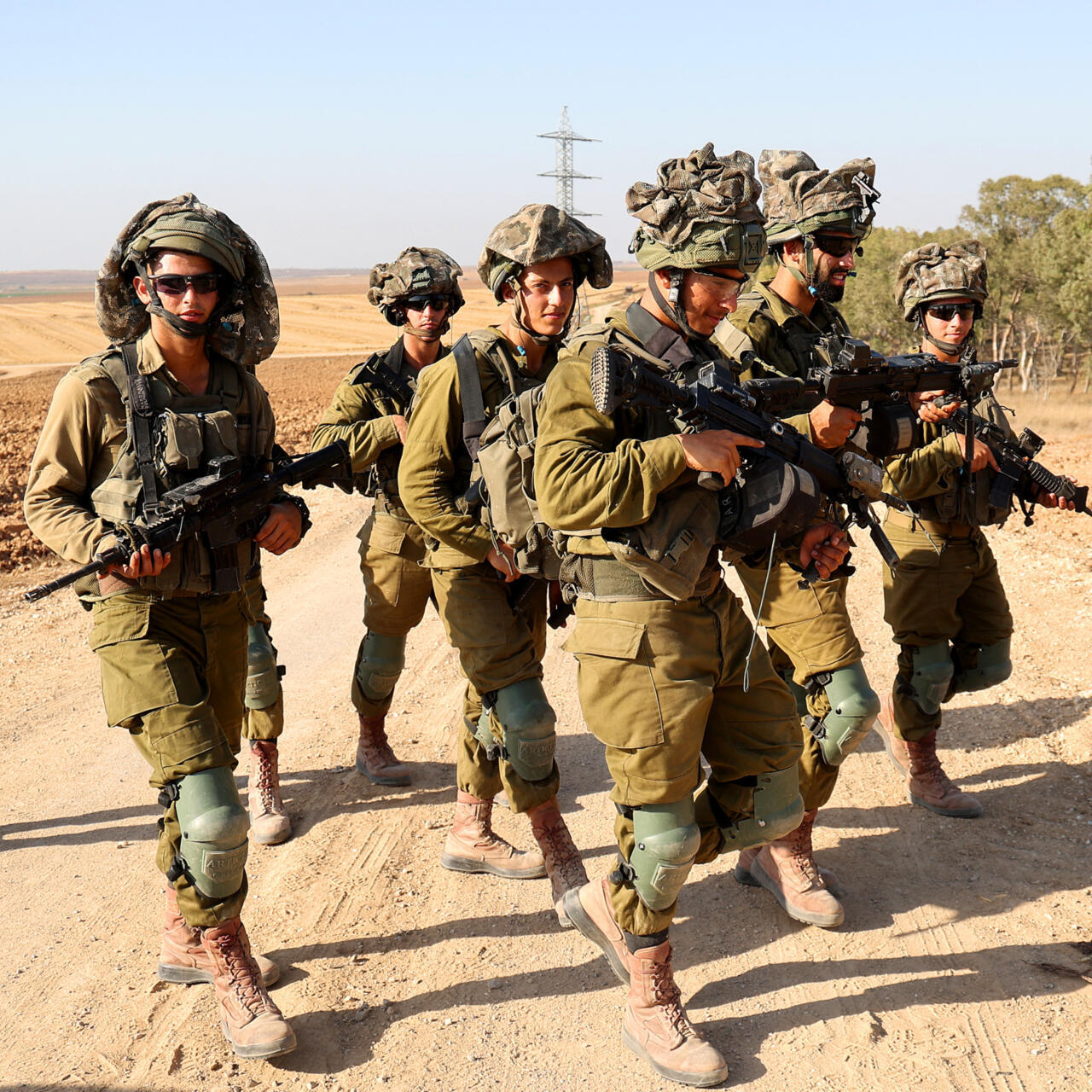
The Fox News poll was conducted June 13-16 and surveyed 1,003 registered voters randomly selected from a national voter file, online or by phone. Results among the full sample have a margin of error of +/- 3 percentage points.
US involvement in Iran conflict would create “better future,” Israel’s former defense minister says
Yoav Gallant, Israel’s former defense minister, said he believes US involvement in the Iran conflict would “create a better future” for the world.
He told CNN Wednesday that he believes Israel has taken Iran’s nuclear program back “a few years” with its strikes in the country, but that to create a better future for the Middle East and beyond, “there is a potential for the United States to be involved.”
He said he believes US President Donald Trump has proven himself to be a “courageous and bold” leader that can make decisions in “difficult times” and that he would “pick this opportunity.”
Gallant went on to say that Trump would do what is best for the American people.
“In this specific issue, what is good for the American people is exactly what is good for the world and for Israel,” he said.
As Trump weighs whether to join Israel’s strikes on Iran including by potentially using bunker-busting bombs to target nuclear facilities deep underground a discussion is underway among his top officials over how the US can strike those targets without becoming embroiled in a full-scale war, sources familiar with the matter said.
Putin doesn’t “even want to discuss” the possibility of the US killing Iran’s leader
From CNN's Max Saltman and Mariya Knight
Russian President Vladimir Putin said he doesn’t “even want to discuss” the possibility of the US killing Iran’s leader.
He made the comment in response to a question while speaking to reporters on the sidelines of an economic conference in St. Petersburg on Wednesday.
It comes after reports that US President Donald Trump rejected an Israeli plan to kill Iran’s Supreme Leader Ayatollah Ali Khamenei.
In response to another question about Russia’s “strategic partnership” with Iran, Putin said it “does not include a clause on defense cooperation.”
Senior Senate Democrats emphasize the need for congressional involvement on Iran strategy
Senior Senate Democrats emphasized the need for Congress’ role in any potential conflict with Iran and pushed for a diplomatic approach in a statement released Wednesday. Signees of the statement included Senate Minority Leader Chuck Schumer and the top Democrats on the Senate Intelligence, Armed Services, and Appropriations committees. “By law, the president must consult Congress and seek authorization if he is considering taking the country to war. He owes Congress and the American people a strategy for U.S. engagement in the region,” lawmakers wrote.
“We need a clear, detailed plan outlining the goals, risks, cost, and timeline for any proposed mission, as well as how he will ensure the safe eva cuation of Americans in harm’s way all across the region,” the statement read. “Congress is an equal partner in preserving and defending U.S. national security around the world, and Congress has not provided authorization for military action against Iran — we will not rubberstamp military intervention that puts the United States at risk,” the statement read.The senators emphasized their continued support for Israel and the need to keep Iran from developing a nuclear weapon, however they pushed for a diplomatic approach. “We urge President Trump to prioritize diplomacy and pursue a binding agreement that can prevent a nuclear-armed Iran and reduce the risk to our diplomats, our service members, and the hundreds of thousands of Americans living in the Middle East,” they wrote. Democratic Sen. Mark Warner, the vice chairman of the Senate Intelligence Committee, suggested President Donald Trump is contradicting what he described as the consensus opinion of the intelligence community.
cuation of Americans in harm’s way all across the region,” the statement read. “Congress is an equal partner in preserving and defending U.S. national security around the world, and Congress has not provided authorization for military action against Iran — we will not rubberstamp military intervention that puts the United States at risk,” the statement read.The senators emphasized their continued support for Israel and the need to keep Iran from developing a nuclear weapon, however they pushed for a diplomatic approach. “We urge President Trump to prioritize diplomacy and pursue a binding agreement that can prevent a nuclear-armed Iran and reduce the risk to our diplomats, our service members, and the hundreds of thousands of Americans living in the Middle East,” they wrote. Democratic Sen. Mark Warner, the vice chairman of the Senate Intelligence Committee, suggested President Donald Trump is contradicting what he described as the consensus opinion of the intelligence community.
“We got a brief as recently as Monday, that seems ages ago, that said the intelligence community has not changed their assessment that Iran had not moved toward an actual weaponization,” Warner told CNN’s Katie Hunt, adding: “And if this president is going to suddenly blow off all of the consensus opinion of the intelligence community, well, what are these folks’ job?
“Their job is to speak truth to power, not cook the books,” Warner continued. “When you cook intelligence, you end up with a war like Iraq, where a president at that point didn’t follow the intelligence and the intelligence was manipulated. I worry that we may be seeing some of that going on.”
His comments come as the president said on Wednesday that he believes Iran was “a few weeks away” from having a nuclear weapon – and as the administration has sent mixed signals on what intelligence it has around Iran’s nuclear progress. Warner said that even he — as part of a high-ranking group in Congress who has access to classified national security information — does not know what the Trump administration’s plans are for US involvement in the conflict. “We’re supposed to know,” Warner said. “I have no foggy idea what this administration’s plans are or what the foreign policy is vis-a-vis Iran.”

A White House official responded to Warner’s comments by pointing to a post from the administration’s rapid response X account.
The post mentions recent comments from US Central Command chief Gen. Michael Erik Kurilla citing the International Atomic Energy Agency saying, “Should the Regime decide to sprint to a nuclear weapon, it is estimated that current stockpiles and the available centrifuges across several enrichment plants are sufficient to produce its first 25 kg of weapons-grade material in roughly one week and enough for up to ten nuclear weapons in three weeks.”
Remember: When Israel launched its series of strikes against Iran, it also issued a number of dire warnings about the country’s nuclear program, suggesting Iran was fast approaching a point of no return in its quest to obtain nuclear weapons and that the strikes were necessary to preempt that outcome.
But CNN reported that US intelligence assessments had reached a different conclusion: Not only was Iran not actively pursuing a nuclear weapon, it was also up to three years away from being able to produce and deliver one to a target of its choosing, according to four people familiar with the assessment.
Putin says Israel has agreed to “ensure” safety of Russians working at Iranian nuclear plant
Israel has agreed to ensure the safety of Russians working at the Bushehr nuclear power plant in Iran, Russian President Vladimir Putin told reporters We dnesday night.
dnesday night.
“Our experts are in the field, we’re talking about over 200 people,” Putin said on the sidelines of an economic conference in St. Petersburg, referring to Russian engineers helping Iran construct two new reactors at the Bushehr plant.
“We agreed with the Israeli leadership that their security will be ensured,” Putin said.
Putin also called for the international community to “seek ways to end hostilities” between Iran and Israel while maintaining Iran’s “peaceful” nuclear activities and Israel’s security.
“There is a consolidation of [Iranian] society around the political leadership of the country,” Putin said. “It happens virtually everywhere all the time, and Iran is no exception here.”
Putin added that he had discussed these issues with US, Iranian and Israeli officials and told them that it is possible to “ensure” Iran’s peaceful nuclear activities.
Iran's top diplomat says Tehran acts solely in "self-defense" but it "remains committed to diplomacy"
Iranian Foreign Minister Abbas Araghchi said Tehran’s actions are purely in self-defense, but his country “remains committed to diplomacy.”
“Iran solely acts in self-defense. Even in the face of the most outrageous aggression against our people, Iran has so far only retaliated against the Israeli regime and not those who are aiding and abetting it,” Araghchi said in a post on X. He accused Israeli Prime Minister Benjamin Netanyahu of “manufacturing this war to destroy diplomacy” and cautioned the world against Israeli attempts to expand the conflict. “Iran will continue to exercise its right to self-defense, with pride and bravery, and we will make the aggressor regret and pay for its grave error,” Araghchi said. Despite the ongoing conflict with Israel, Araghchi said his country “remains committed to diplomacy,” adding: “As before, we are serious and forward-looking in our outlook.”
Trump's Situation Room meeting has ended
From CNN's Alejandra Jaramillo
President Donald Trump’s Wednesday afternoon meeting in the Situation Room has concluded, according to the White House.
The president told reporters in the Oval Office earlier Wednesday he was convening with his team soon to discuss options in the Israel-Iran conflict.
The White House did not say what time the meeting began or how long it lasted.
North Korea denounces Israel’s attacks on Iran
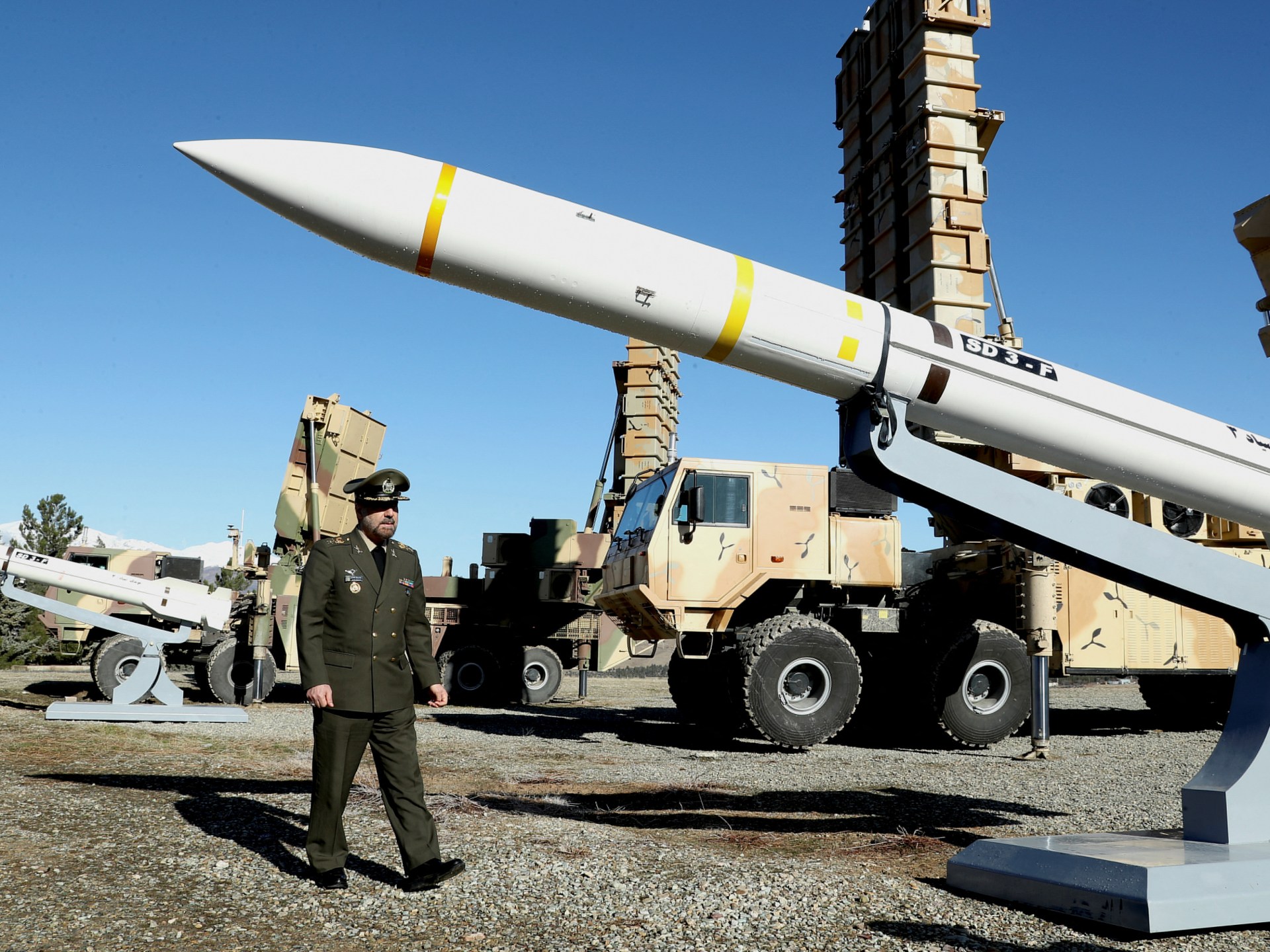
North Korea has denounced Israel’s attacks on Iran, saying they risk a new all-out war in the Middle East, according to the state media outlet KCNA.
It described Israel’s actions as an illegal violation of Iran’s sovereignty and a crime against humanity.
“The present grave situation witnessed by the world clearly proves that Israel, supported and patronized by the US and the West, is a cancer-like entity for the peace in the Middle East and a chief culprit of destroying global peace and security,” a statement from the foreign ministry read.
Families of hostages call on Trump to use Iran conflict to help release their loved ones still held in Gaza
From Tamar Michaelis and Hira Humayun
The families of the hostages still held in Gaza wrote an open letter to US President Donald Trump, calling on him to leverage the conflict with Iran to help get their loved ones released with a “comprehensive deal.”
“We deeply believe that bringing our loved ones home in one comprehensive deal and one single phase is inseparable from your grand vision for transforming the Middle East and confronting the forces of evil and terror,” the families said in the letter shared by the Hostages and Missing Families Forum.
“We are at a critical moment with a time window that is essential for bringing them all home,” the letter continued. “As tensions rise across the Middle East, we ask that you not forget the 53 hostages who remain in Gaza.”
The families underscored the need to take action “while Iran and Hamas are at their weakest point” to secure the release of the hostages. According to the group, 53 hostages remain in Gaza, one of whom has been held since 2014. Of these people, at least 20 are believed to be alive and 31 dead, according to the Israeli government.Despite the heightened tensions between Israel and Iran, Israeli officials have doubled down on commitments to continuing operations in Gaza.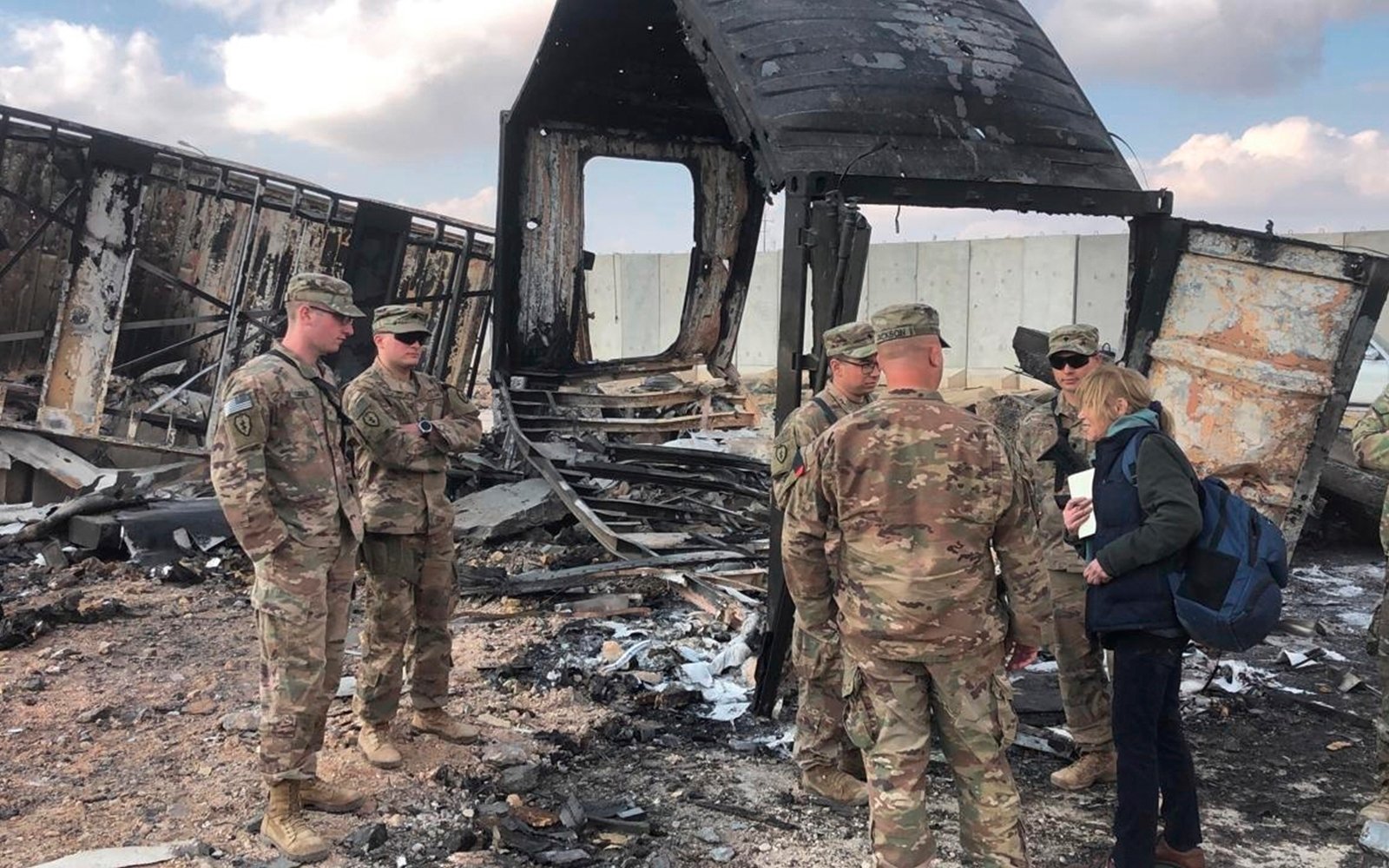
All-Senate classified briefing on Iran set for next week
There will be an all-senators classified briefing on Iran early next week, according to an aide for Senate Minority Leader Chuck Schumer.
No further details on date or time available yet.
Schumer said earlier in a Wednesday news conference on the sweeping reconciliation bill that he had requested a classified briefing with all senators on Iran.
Israeli military says it has degraded Iran’s ability to launch large barrages of ballistic missiles
The Israeli military assesses that it has significantly degraded Iran’s ability to fire large barrages of missiles toward Israel, according to an Israeli military official.Iran is now firing smaller barrages of missiles following six days of Israeli airstrikes that have destroyed large numbers of ballistic missile launchers, disrupted the Iranian military’s command structure and sent Iran scrambling to move its missile assets further east, the official told CNN.The latest Iranian ballistic missile launch at Israel on Wednesday evening consisted of a single missile, according to the Israel Defense Forces (IDF).
The Israeli military has now destroyed approximately 40% of Iran’s ballistic missile launchers, the official said.Israel has also killed senior Iranian commanders responsible for air defense, which the official said has disrupted Iran’s ability to effectively coordinate its missile launches.And with Israeli jets now operating freely over the skies of western Iran following strikes to air defense assets, Iran has sought to move many of its ballistic missile launchers east.The Israeli military has also actively disrupted Iranian missile launches in progress. “When we see them, we fire at them,” the Israeli military official said.
Still, Israel does not know whether Iran’s capabilities have been permanently degraded and that Iran won’t soon again be able to resume larger barrages.Israel carried out “a series of strikes” targeting over 20 military sites in Tehran, including facilities linked to Iran’s nuclear program and missile production, the Israel Defense Forces (IDF) said on Wednesday.Over the past few hours, 60 Israeli Air Force fighter jets “struck weapons production sites, centrifuge production sites, as well as research and development sites of the Iranian regime’s nuclear weapons development project,” the IDF said in a statement. “These sites were designated to allow the Iranian regime to expand the scale and pace of its uranium enrichment purpose of developing nuclear weapons.”Despite advancing its uranium enrichment significantly, Iran has repeatedly said that its nuclear program is for peaceful purposes and denied that it was developing an atomic bomb.
The latest strikes also targeted “factories producing raw materials and components for missile assembly, as well as sites for the production of Iran’s air defense systems,” the statement said.Trump says he has not made a final decision on possible US military involvement against Iran
President Donald Trump said that as of this afternoon, he has not yet arrived at a final decision on potential US involvement in the conflict between Israel and Iran, adding that he is soon convening his team in the Situation Room with top officials to discuss options.
“I have ideas as to what to do, but I haven’t made a final — I like to make the final decision one second before it’s due, you know, because things change. I mean, especially with war, things change with war. It can go from one extreme to the other,” he told CNN’s Kaitlan Collins in the Oval Office.Trump detailed some of his thinking as he has warmed to the idea of potentially using US military assets to strike Iranian nuclear facilities.“It started the first night,” he said, referring to Israel’s bombardment of nuclear sites and military officials in Iran, which began last week.Trump continued, “That first night was devastating, and it really knocked the one side off, as you know, devastating. A devastating evening, day, and it pretty much proceeded that way. I have a meeting in the War Room in a little while, the Situation Room, as some people call it. So we’re going to meet, we’re going to see. We’re in the midst of it.”Asked about what would happen if the Iranian regime falls, Trump said, “I have a plan for everything, but we’ll see what happens. Got a ways to go,” reiterating that Iran “should have” made a nuclear deal.Trump again suggested that Iran wants to meet and “(wants) to come to the White House,” something Iranian officials have strongly disputed. The USA president later added that he has not “closed the door on meeting with them.”
Posted on 2025/06/19 01:52 PM

